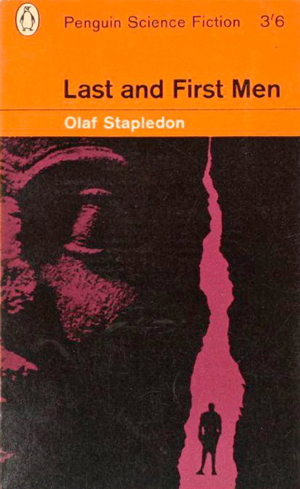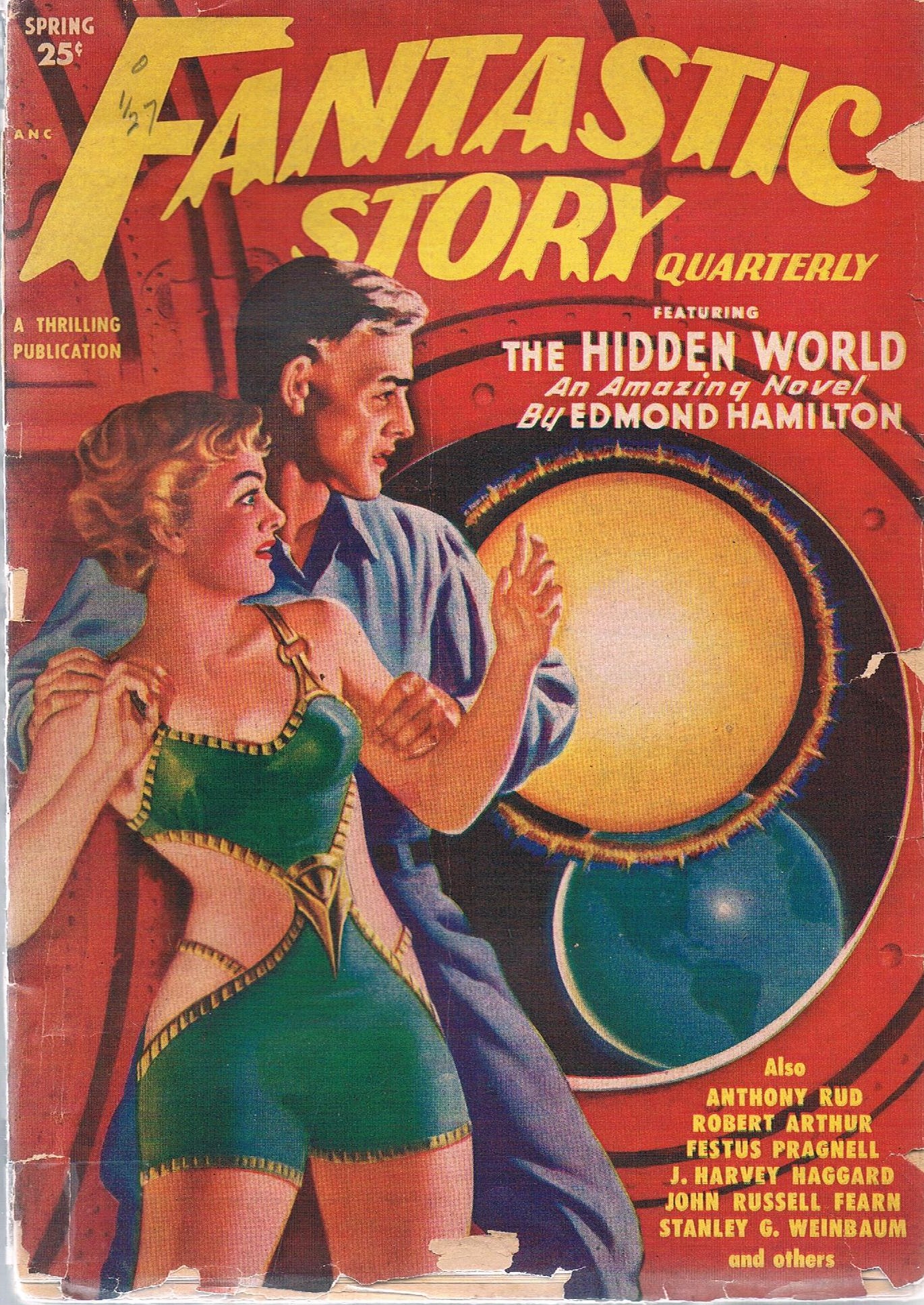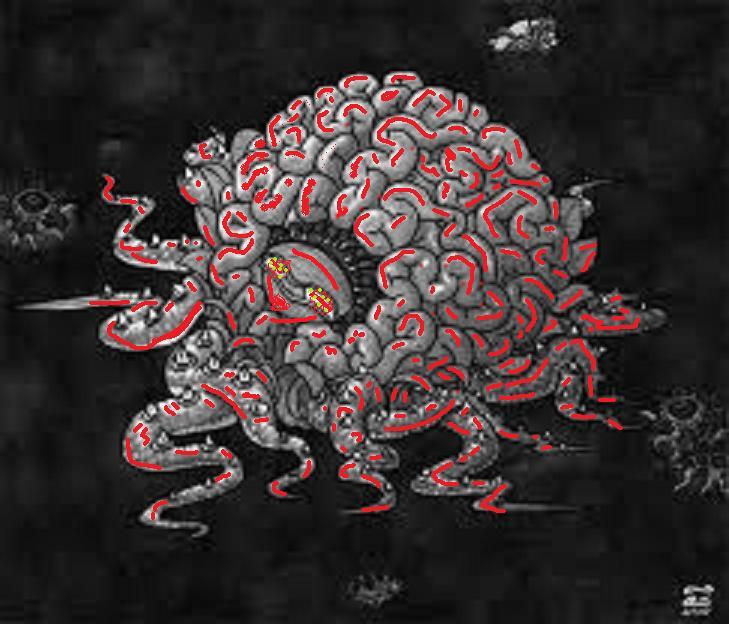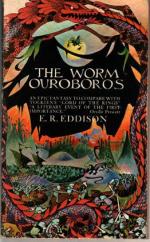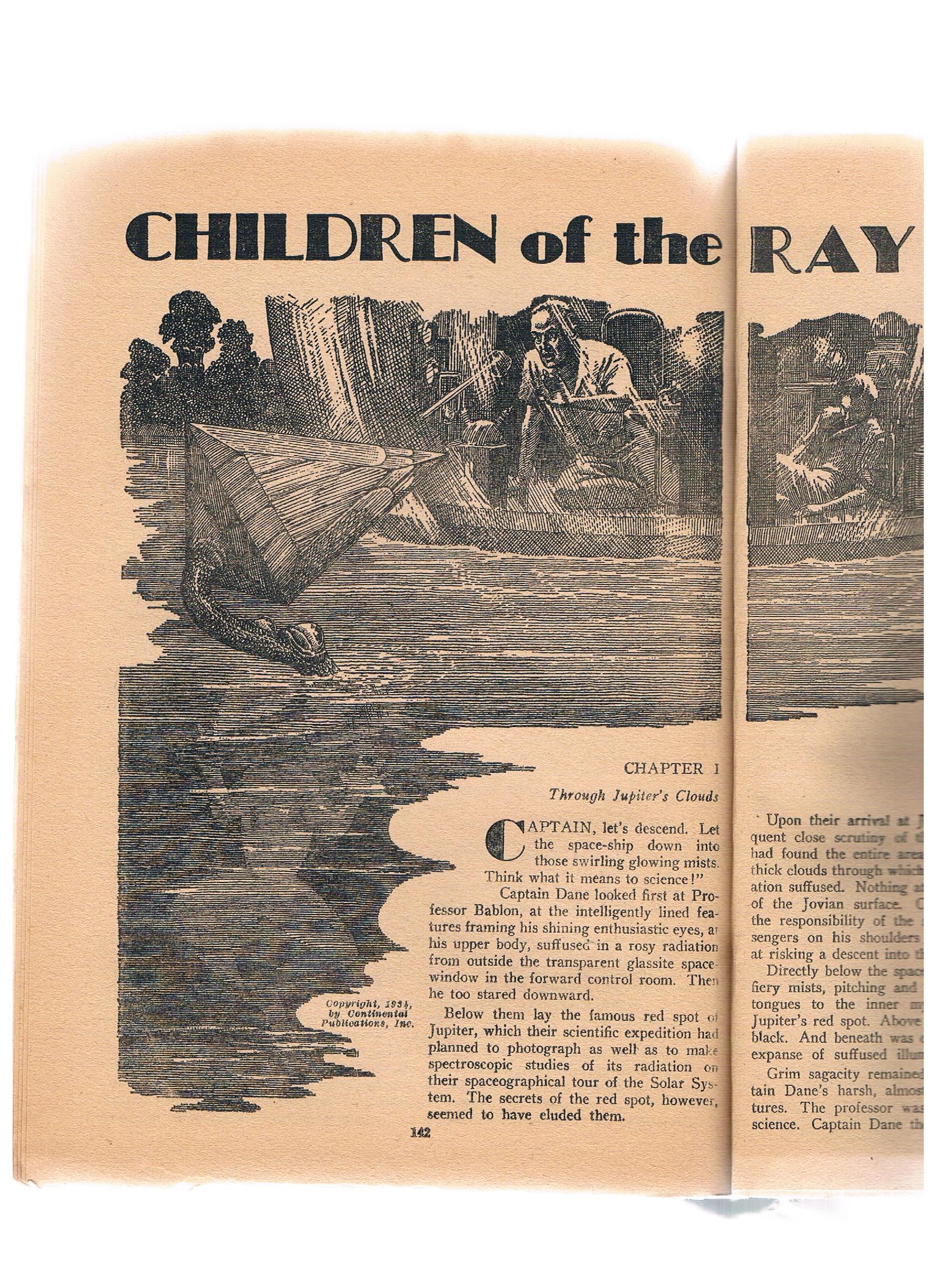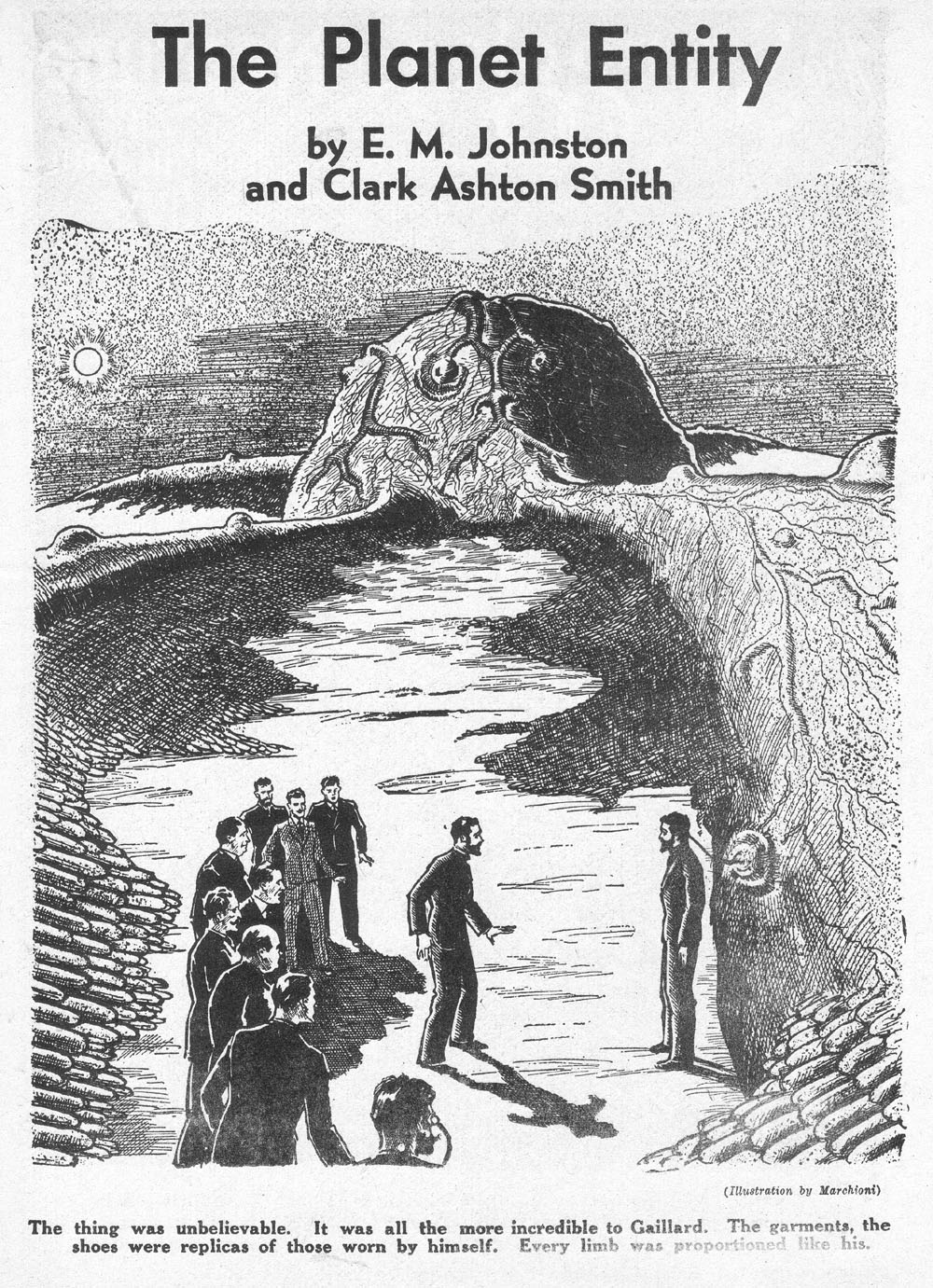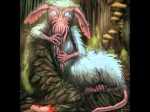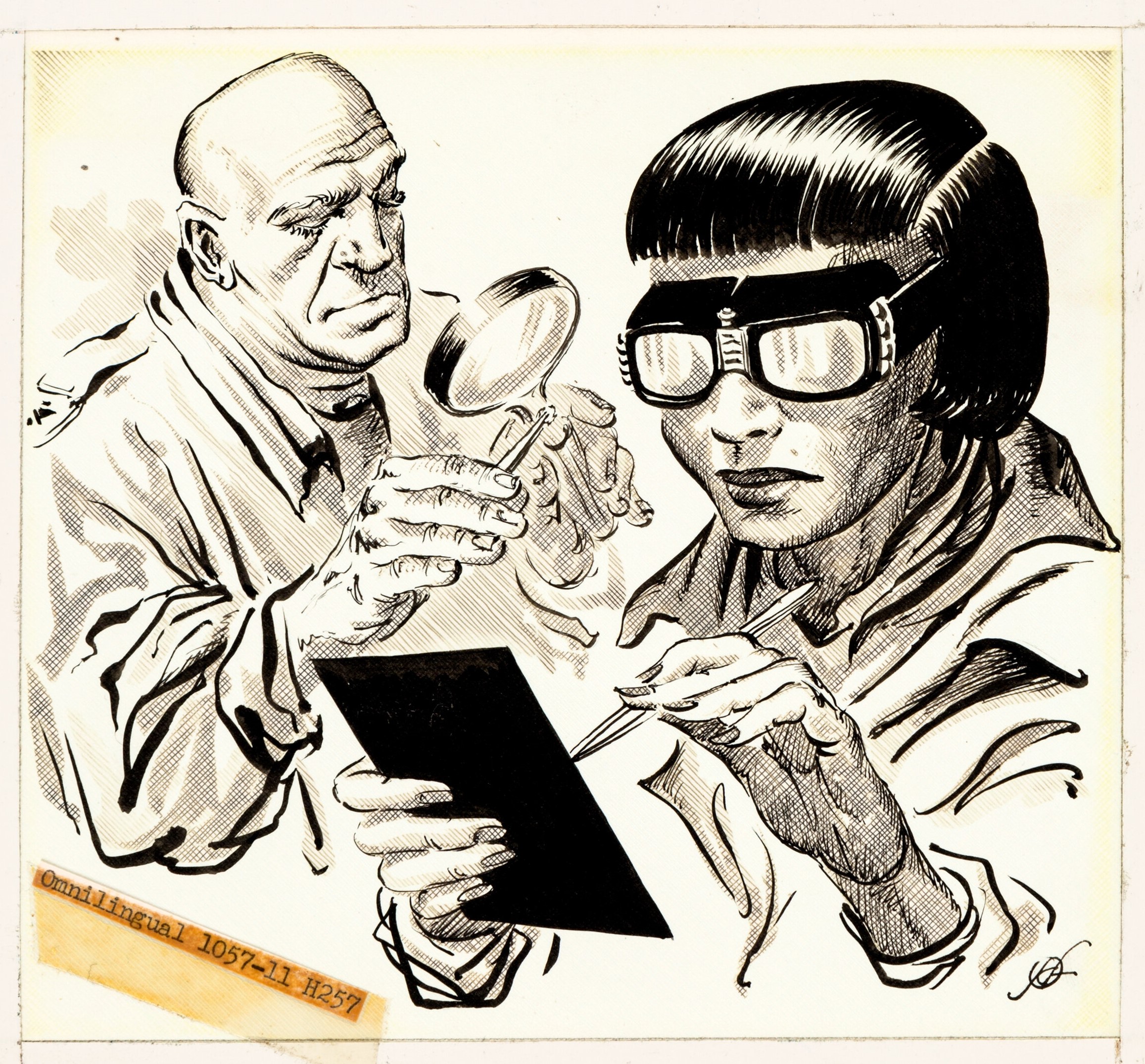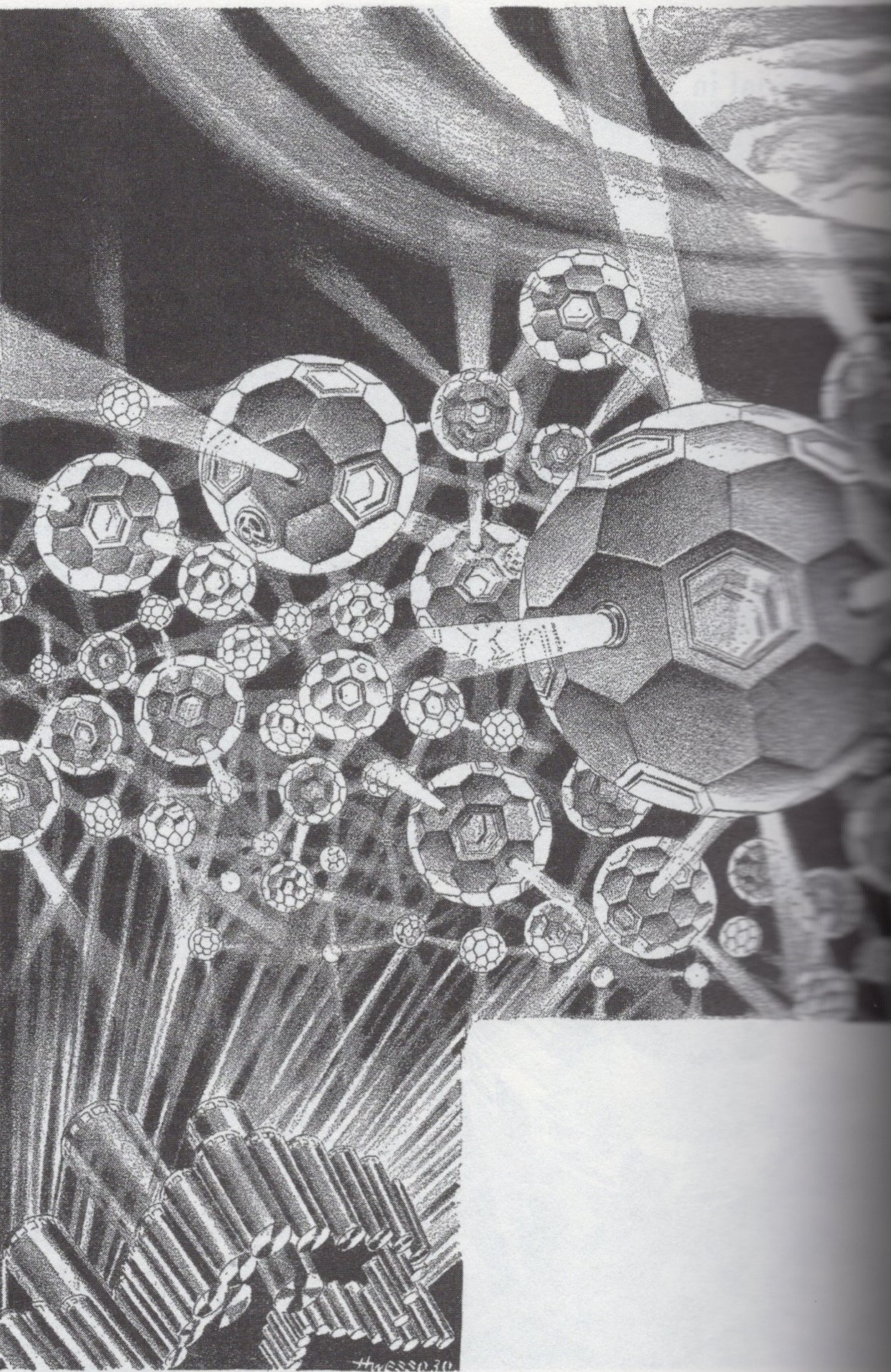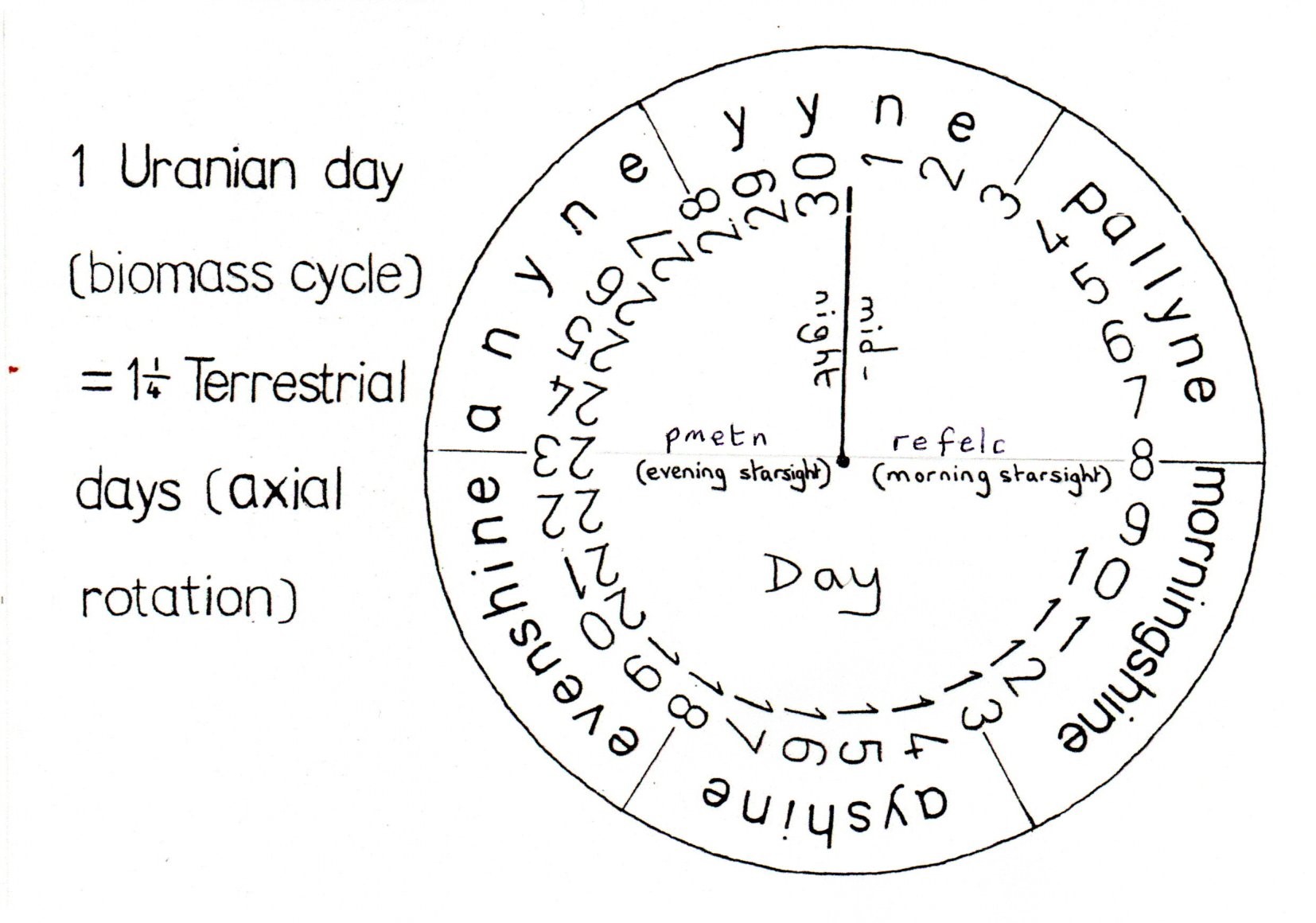- Home
- Your Views
- Part seven of The Archives of the Moon
Part seven of The Archives of the Moon
by Robert Gibson
(Lancashire, England)
VII
The disembodied reader, Dr Simon D. Royden, F.R.S., apparently suspended in luminous air, was able to gaze in all directions at once. And from all directions the scene shone back at him, in fulgurations of chromatic glory.
The sky was a deep and royal blue. So was the water, visible past intervening glades of saffron turf, each glade bordered by intricate nodose grasses.
The grasses reared high their lozenge-shaped blades and gemmiferous heads, scattering a splintered largesse of irised light; while in the opposite direction, away from the ocean, stretched uplands with wider meadows, frizzled more densely with similar varieties of sparkling blades.
Beyond the meadows, the heavy all-drenching sunlight smote upon scintillant peaks which masked that portion of the curving horizon of this small world, whose native name was Yyu.
In the shade of a columnar boscage, not far from the shore, stood a conical lodge. It was surrounded by a small patio adorned with flowers and rock-scrolls, where two silver-skinned beings conversed in fluting tones. The creatures were humanoid, with a frail, delicate beauty, strong enough, however, in their withy limbs and their subtle brains.
Vaphru, Queen of Atth, listened in perturbation to the remonstrances of her lover Dzhaoo, a headstrong member of her swarm. The coronal fringe of tendrils upon Vaphru’s head fluttered in agitation as Dzhaoo reiterated his passionate warning:
“Do not go to Palabaraz, O my (sovereign/sustainer/centre of universe – the connotations blended in Royden’s mind). Pihinxin is an ambitious (king/swarm-leader/hive-dominator), eager to extend his power, and he would inveigle you into choosing a mate who would always be complaisant to orders from the Palabarazan throne. But even if this were not true, I implore you to believe that no mate whom you could find in that great city, or in any other, could give you the (love/one-ness/fulfilment) that I could give you.”
And he proffered his clasped hands in supplication, knowing full well that his boldness of speech was unheard-of; the monarchs of Yyu formed an exclusive social and biological caste, which mated always with the special royal broods, and never with the common members of the swarms, who existed in dreamy contentment, almost always inferior in intelligence to their rulers.
Dzhaoo was an exception, a commoner with the awareness of a king; a freak so rare that he had given no offence so far. Vaphru had merely listened to him in silent wonder when he first made his avowal; while Pihinxin, King of Palabaraz, who had taken the precaution of excluding royal rivals from the wardship of Vaphru, had ignored Dzhaoo as being of no significance, and had allowed him unmolested passage through his land. Thus had Dzhaoo, flying at top speed, overtaken Vaphru before she reached Palabaraz.
But now that he had found her, and had pleaded with her, he felt that he had exhausted his stock of contrivances. She did not appear to be listening to him with favour. Evidently, the mating of a monarch and a commoner, which Dzhaoo had foretold would be an epochal sign of a mass-awakening of the swarms, would be left to the future, to a different pair, if it ever happened at all.
Thus thought Dzhaoo, unaware how close to victory he was. If he had lived in the latter-day era of the perfect script, he might have had the advantage of the telepathy which by then would have spread among the Yyr, the people of Yyu. But he lived in an earlier and simpler age. He therefore lacked the mind-reading skill to discern the positive response of Vaphru’s heart, hidden by her impassive royal mien. His own spirits collapsed in dejection, made worse by a clouding anxiety for the future of their swarm.
Royden the disembodied reader, however, was able to see the hopeful signs. In accordance with the author’s intention, he received from the narration an omniscient insight into the thoughts and emotions of every character in the story. Being human, he adapted the interpretation somewhat to fit with human categories; the result was an amalgam of themes, in which the tale of Vaphroo and Dzhaoo was seen through a lens of human romance – yet still preserving most of its Selenite authenticity.
Queen Vaphru of Atth, beset by a vacillatory and perplexing gamut of emotions, left the cultivated area and commenced a nervous perambulation of the nearby grove. Her hyaline eyes underwent rapid nictation; her arms performed saccadic gestures; the ossicles on the sides of her head buzzed indecisively. Dzhaoo’s accomplished oracy had worked a profound effect upon her will, so that she no longer felt sure what to say – an unusual condition for a sovereign.
She replied in captious tone as the commoner strode to keep up with her, “I have already heard the voice of Zdrarph, the choice of Pihinxin. Zdrarph is every bit as eloquent as you, O my forward subject. And he is far more considerate of my peace of mind than you are. Why should I believe that you would make a better King of Atth than he?”
Having spoken, she glanced sidelong, and pretended to study the volutes of the flowers and the rock-scrolls which twined their floral and mineral beauties in miscible profusion.
Now it was evident to Dzhaoo that his battle was won.
As he watched, the palpitations of her chrominences increased, as she became aware that she had, by her own tone – and by abandoning her gracious aloofness so far as to compare him, Dzhaoo, provocatively with Zdrarph – answered her own question.
With a fateful gravity, aware that her compliance was against all custom and example, she opened her arms to receive her plebeian suitor, who clasped her in tender ecstacy while Royden the reader simultaneously became thoroughly aware of the author’s tendentious purpose in selecting this scene for his narrative. For it was a turning point in the evolution of all the sixteen swarms of Yyu.
Dzhaoo spoke many amorous words, but they were slurred in the shadow of the sentence which was emphasized most in the script:
“Together, you and I must accomplish a revolution if we are to survive.”












































